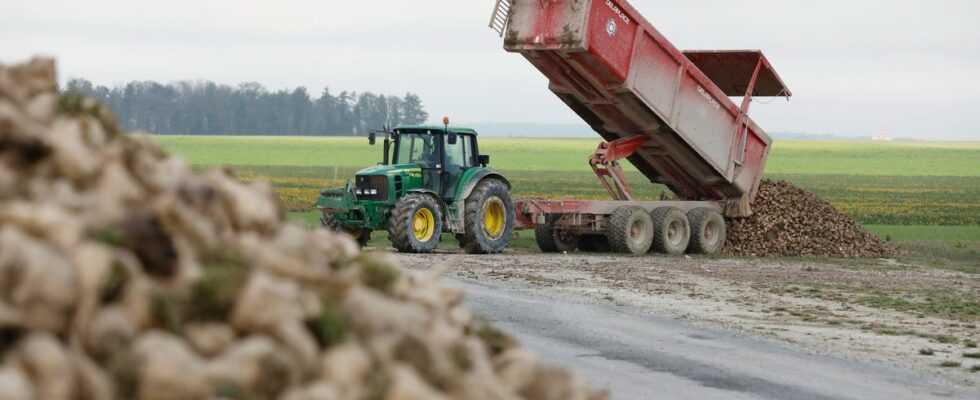Biodiversity advocates are particularly pleased. Complying with a decision on Thursday from the Court of Justice of the European Union, France announced on Monday that it would give up authorizing neonicotinoids by derogation to protect the seeds of sugar beets which must be planted in March.
“I have no intention of fooling farmers and in particular those who are worried, because it is in 4 to 6 weeks that they will make the decision to plant the seeds,” said the Minister of Agriculture. , Marc Fesneau. The government will therefore not propose a “third year of derogation on the coating of beet seeds”.
A pesticide to fight beet yellows
Neonicotinoids, insecticides that attack the nervous system of insects, are implicated in the massive decline of bee colonies. Several substances have been banned in the EU since 2018, but several countries have granted derogations, these insecticides making it possible to control an aphid vector of beet yellows.
The Bird Protection League hailed a “great victory for biodiversity”. “Neonicotinoids: period! For its part trumpeted the association Agir pour l’environnement, which had twice brought this fight against neonicotinoids before the Council of State, claiming in vain their total ban.
Beet growers are “collapsed”. “There will be drops in surface area, planters who will give up. If it’s a year with low pressure (of jaundice), we will be able to manage, but if it’s like in 2020 where we lost a third of the harvest, it will be catastrophic”, declared Franck Sander, president of the General Confederation of Beet Planters (CGB).
The problem of German competition
Marc Fesneau, who himself said he was in favor of a “last year” of derogation to allow the sector to develop an alternative solution, tried to reassure producers and sugar manufacturers, received on Monday afternoon. “I agreed with the representatives of the sector that we would put in place a system which would make it possible to cover the risk of losses which would be linked to jaundice, while we find the alternatives we need”.
The minister also wants “to activate the safeguard clauses at European level so that there is no distortion of competition”, while France is the leading European sugar producer. In case of jaundice, the CGB claims full compensation, without deductible, under penalty of “endangering the entire industry”, from the 24,000 producers to the factories that transform the roots into sugar, alcohol or bioethanol fuel. Above all, Franck Sander fears European competition and in particular that of Germany, which “has given up on coated seeds but authorized a neonicotinoid spray product”.

